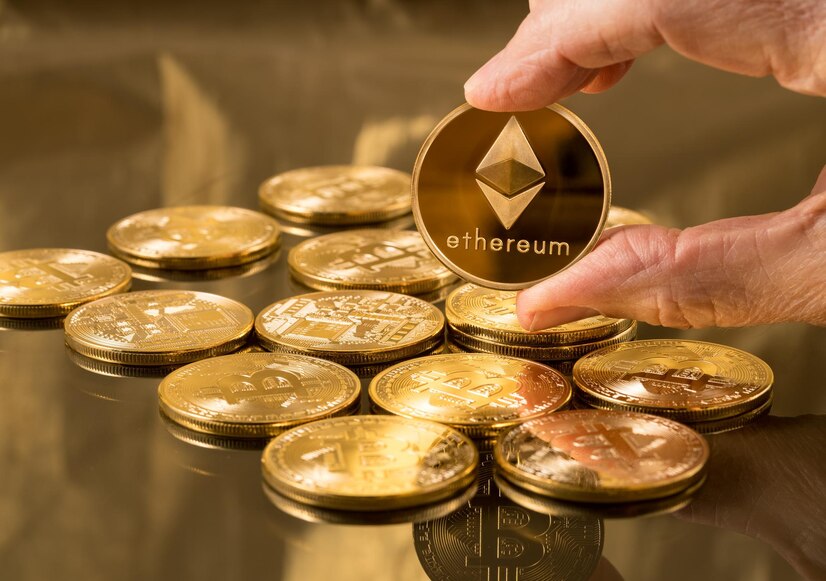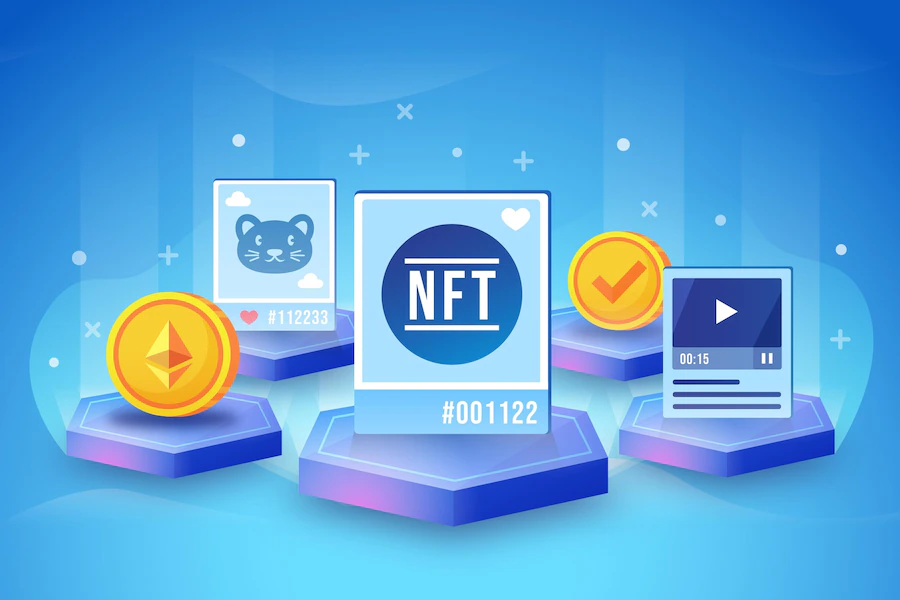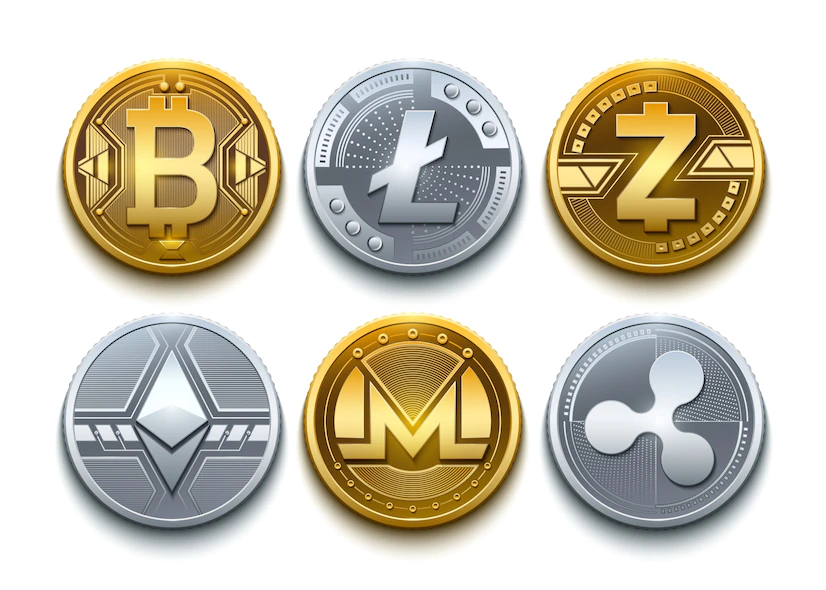Ethereum is a programming language and decentralized application platform. While the Ethereum platform may be used to develop both public and private blockchain-based applications, its most well-known feature is its public blockchain, which has grown in popularity since its first release in 2015. Today, the Ethereum network is home to over a thousand distinct applications, including the two most valuable cryptocurrencies by market capitalization: Bitcoin (BTC) and Ether (ETH).
The Ethereum network is built on the concept of “smart contracts,” or computer programs that run automatically when specific circumstances are fulfilled. As a result, Ethereum is suitable for facilitating automated peer-to-peer transactions that do not require the involvement of middlemen like banks or payment processors.
Ethereum is a platform that enables the use of smart contracts to create apps. This area includes software development concerning the Ethereum Virtual Machine (EVM) and Solidity, an application-level programming language used to generate smart contracts. Related topics include decentralized applications, developer tools, DApps, crypto exchanges, and blockchain scalability.

What is the difference between Ethereum and Bitcoin?
Ethereum, which debuted in 2015, expands on Bitcoin’s invention, but with several notable changes.
Both enable the usage of digital money without the involvement of payment providers or banks. However, because Ethereum is programmable, decentralised apps may be created and deployed on its network.
Because Ethereum is programmable, you can build apps that use the blockchain to store data or limit what your app can do. As a result, a general-purpose blockchain capable of doing anything is built. Ethereum’s lack of constraints allows for significant innovation on the Ethereum network.
While Bitcoin is essentially a payment network, Ethereum is more analogous to a marketplace of financial services, games, social networks, and other programs that respect your privacy and cannot access your personal information.

What does Ethereum do?
Ethereum can power a wide range of apps that execute a wide range of functions:
Currency: With a cryptocurrency wallet, you may transfer and receive ether as well as pay for goods and services that take digital currency. Some sites, such as Coinbase, even let you to keep your coins in a digital wallet, which theoretically makes them less vulnerable to hackers. Smart contracts are permissionless programmes that run automatically when the requirements of the contract are satisfied. Decentralized applications, or dApps, are digital programmes that allow users to do things like play games, invest, send money, maintain an investment portfolio, and follow social media.
Non-fungible tokens: These Ethereum-powered tokens let artists and others to sell paintings or other things to purchasers directly using smart contracts.
Decentralized finance: By adopting Ethereum, some people may be able to circumvent centralized (government) control over the transfer of money or other assets. Again, considering Ethereum as a token that powers numerous apps rather than a coin that lets users transmit money to one another may be more appropriate.

What is the origin of ether coins?
There were approximately 120.4 million ethers in circulation as of April 2022. Furthermore, while new coins may be “mined,” the total annual issuance is limited. This starkly contrasts with Bitcoin, which has a maximum of 21 million coins. can be mined, and new issuance becomes more difficult each year. Furthermore, it contrasts with Dogecoin, where issuance is completely unlimited.
The computers on the network “mine” Ether coins and other cryptocurrencies. They use mathematical calculations to unlock coins or fractions of coins.
That setup, however, is changing. To mine new coins and validate transactions, both the Bitcoin and Ethereum blockchains employ “proof-of-work.” It’s an expensive, time-consuming, and energy-intensive process that can clog the network. As a result, the minds behind Ethereum have decided to switch to a “proof-of-stake” system, dubbed Ethereum 2.0.
New coins are created in this system as part of a payment for validators, who participate in overseeing and verifying cryptocurrency transactions.

Is Ethereum a good investment?
Yes, because the price of Ethereum has risen significantly in recent years, those who bought and held it years ago have done well. But rather than being concerned about missing out on yesterday’s price movements, it’s critical to understand what you’re investing in. As a result, those who purchase Ethereum are purchasing a cryptocurrency that is not backed by any hard assets or cash flow.
That may seem insignificant, but it is the primary distinction between stocks and cryptocurrency. Because stock is a fractional ownership in a company, its performance over time is determined by the company’s ongoing success. If the company’s profit grows, its stock is likely to follow suit over time. Stockholders have legal ownership of the assets and cash flow of that business.
In contrast, Ethereum and the majority of other popular cryptocurrencies are not backed by anything. The only thing keeping the price up is the optimism of other investors, all of whom believe they will be able to sell the crypto coin for more money to someone else later – a concept known as the “greater fool theory” of investing. The only thing driving the price of Ethereum and other cryptos is speculation.
For this reason, investing legend Warren Buffett, among others, refuses to touch cryptocurrency and has even gone on record as calling it “rat poison squared.” Buffett’s approach indicates the long-term value available in cryptocurrencies.

Should you invest in Ethereum or mine it?
If you want to speculate on ether coin, you can simply buy and trade the cryptocurrency That is, you want to earn coins that are worth more than you paid to mine them.
Most importantly, with the Ether coin moving to a proof-of-stake system, Ethereum will no longer need miners. Instead, validators will oversee the system and validate crypto transactions. That’s why one Ethereum developer recommends not investing in any more mining equipment.
In the end, it’s easier to buy Ethereum than to mine it, and requires less effort. There may still be profit potential in the mining of cryptocurrency, but you’ll have to see if the numbers work.

Conclusion
Speculators can invest in cryptocurrencies such as Ether coin directly, but they can also invest in companies that may profit from a move toward digital currencies.
Whether you’re trading Ether, Bitcoin, or any cryptocurrency company, it’s vital to understand the risks, including the potential loss of your entire investment. Investors should take a measured approach to cryptocurrency, given its volatility and many risks. Those who are looking to get a taste of the action should not invest more than they can afford to lose.

